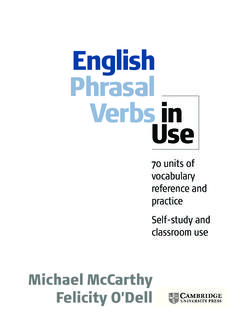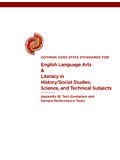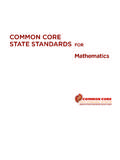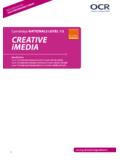Transcription of Vocabulary Building Academic For Six Step Process …
1 What Research Has Found Over the last five years, I have been involved in more than 50 studies that involve this strategy. In all these studies, teachers used the strategy with one class but did not use it with another. Then they compared the results. These studies have taught us several things about this six- step strategy. First, the strategy works at every grade level, from kindergarten to high school. Second, it works better if you use all the steps without leaving any out. In one middle school study, teachers found that the whole Process en-hanced students' achievement much more than the parts of the Process in isolation did. Third, although the majority of studies indicate that the Process en-hances student achievement, some studies indicate that it doesn't.
2 For example, in one district in which 24 ele-mentary teachers used the six- step Process with one group of students but not with another, the average effect for using the strategy across all 24 elementary teachers was a 24-percentile-point gain. Six studies showed gains greater than 40 percentile points, but nine studies showed negative effects. Happily, the research is also beginning to tell us what does or doesn't make the strategy work. Here's what we've learned so far: When students copy the teacher's explanation or description of a term instead of generating their own explanation, the results are not as strong. Ideally, student explanations should come from their own lives.
3 The third step in the Process is crucial having students represent their understanding of a new term by drawing a picture, pictograph, or sym-bolic representation. When students do this step well, achievement soars. Games seem to engage students at a high level and have a powerful effect on students' recall of the terms. Games not only add a bit of fun to the teaching and learning Process , but also provide an opportunity to review the terms in a nonthreatening way. After the class has played a Vocabulary game, the teacher should invite stu-dents to identify difficult terms and go over the crucial aspects of those terms in a whole-class discussion. Of course, we still have more to learn about this strategy.
4 But for now, it's safe to conclude that it can be a powerful tool that teachers can use in classrooms at any grade level and in any subject area. References Kluger, A. N., & DeNisi, A. (1996). The effects of feed-back interventions on performance: A historical review, a metaanalysis, and a preliminary feedback intervention theory. Psychological Bulletin, 119(2), 254 284. Marzano, R. J. (2004). Building background knowledge for Academic achievement: Research on what works in schools. Alexandria, VA: ASCD. Robert J. Marzano is Cofounder and CEO of Marzano Research Laboratory in Denver, Colorado. He is the au-thor of The Art and Science of Teaching (ASCD, 2007) and coauthor, with Mark W. Haystead, of Making Stan-dards Useful in the Classroom (ASCD, 2008).
5 Marzano s Six step Process For Building Academic Vocabulary 1. Provide a description, explanation, or example of the new term. Looking up words in dictionaries is not useful for teaching vocab Provide a context for the term Introduce direct experiences that provide examples of the term Tell a story that integrates the term Use video as the stimulus for understanding information Ask students to investigate the term and present the information to the class (skit, pantomime, poster, etc.) Describe your own mental picture of the term Find or create pictures that explain the term Resources: Visuwords is an awesome visual tool to find new words and improve your Vocabulary . When you look up a word in this tool, it shows a neat graph which connects that word to vari-ous other words based on different relationships between them.
6 You can hover over each word to get its definition and also zoom-in and zoom-out using your mouse wheel. It's cer-tainly an excellent dictionary plus thesaurus. is probably the most common and most com-prehensive of all the dictionary tools available. Apart from giving the word meanings and pronunciation, it also provides various tools (like the toolbar), RSS feeds to improve Vocabulary and word explorer podcasts. is a part of and gives an elabo-rate description of words, the part of speech they belong to and various synonyms and antonyms of that word. Merriam-Webstar Online ( ) Merriam-Webstar Online is a huge online resource for learn-ing and improving your English. It provides dictionary and thesaurus which includes spanish-english and medical diction-aries.
7 You can easily look up words and listen to their pronun-ciation. Further it provides other resources like crosswords and word games. It also has a visual dictionary which com-bines words with images. approaches the task of finding meanings of words in a different way. It aggregates various links on the web which provide an explanation to the term and shows the results. Hence it does the job of pulling definitions of the word from the entire web. Thsrs ( ) Thsrs helps you to get shorter synonyms of long words. Al-though it's not dead accurate but still can be useful at times. It also provides a browser plug-in to easily look up shorter syno-nyms of words with a right click. Wordsmith ( ) Wordsmith is a nice resource for new words, especially its ' A Word A Day ' newsletter, which is immensely popular and delivers new words everyday to your email inbox.
8 Also in-cludes the Internet Anagram Server a really cool Anagram creator! Thinkmap Visual Thesaurus ( ) Thinkmap Visual Thesaurus is a free-to-try visual tool which shows related words in an interactive map and helps you to easily find their meanings and listen to their pronunciation. AskOxford is the online version of the famous dictionary by the Oxford University press. It's comprehensive without a doubt and includes various other Vocabulary resources and a quotations dictionary. Alpha Dictionary ( ) Alpha Dictionary doesn't directly show you the meaning of a word. Instead it searches all the available online dictionaries (most of them) and displays the results in the form of links to the meaning of that word in those dictionaries.
9 So choose your favorite dictionary (if at all you have one) and click on the corresponding link to view its meaning. 2. Ask students to restate the description, explanation, or example in their own words. Monitor and correct misunderstandings Must be student s original ideas, not parroting the teacher Discuss with a partner Student record (notebook or journal) Learning Games-Involve students in games that allow them to play with terms. Games might be one of the most underused instructional tools in education. Many types of games can help teachers keep new terms in the forefront of students' thinking and allow stu-dents to reexamine their understanding of terms. It is important to set aside blocks of time each week to play games in order to energize students and guide them in the review and use of impor-tant terms.
10 Jeopardy Pyramid I have, who has? Pictionary Memory Jeopardy (vocab words are on the board, players make up a question to define) Charades Name that Category ($100,000 Pyramid) Bingo (you give definition, kid marks the word) Create a skit (assign groups of 3-4 kids 3 vocab words to make a skit out of) Kids Make their own game / Gamigami Notes: _____ _____ _____ _____ _____ _____ _____ _____ _____ _____ _____ _____ _____ 6. GAMES First, a teacher should provide students with information about the new term. Teachers tell a story using the term. use video or computer images as a source of information. use current events to connect the term to something fa-miliar. describe their own mental pictures of the term.







